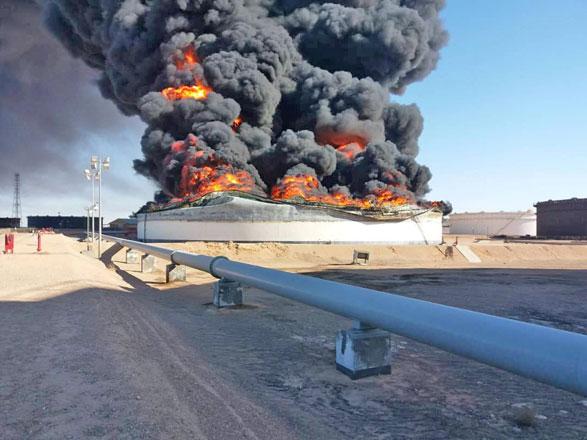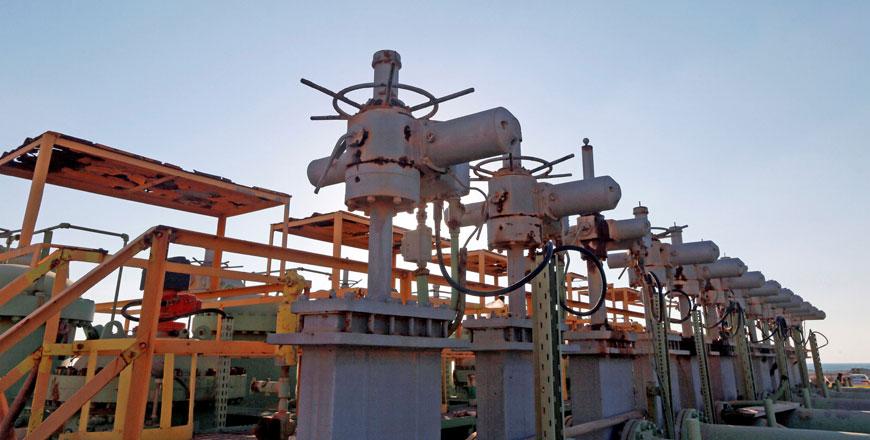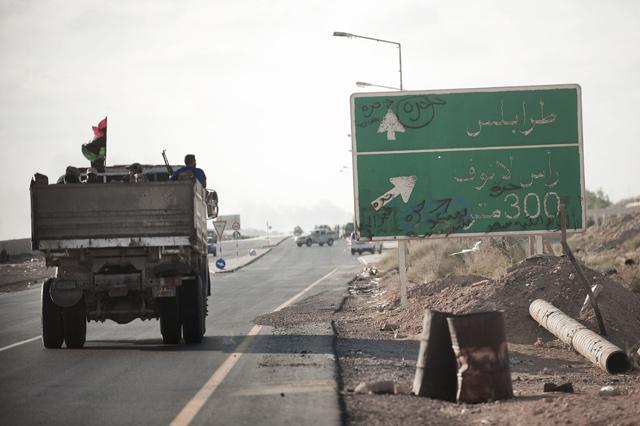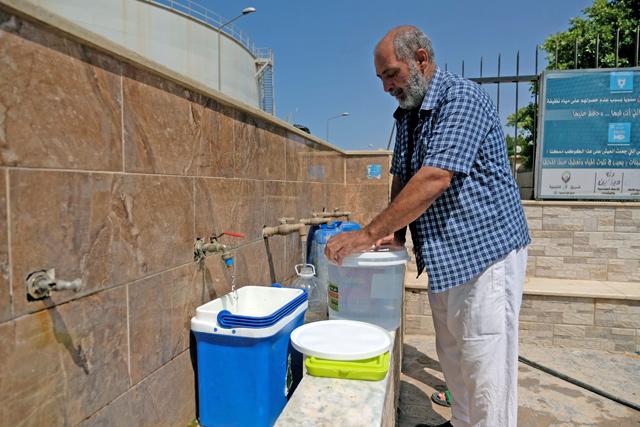You are here
Clashes at Libya oil sites cause ‘catastrophic losses’
By AFP - Jun 18,2018 - Last updated at Jun 18,2018

Smoke and flame rise from an oil storage tank that was set on fire amid fighting between rival factions at Ras Lanuf terminal in Libya in this handout photo released on Monday (Reuters photo)
TRIPOLI — Libya's National Oil Company (NOC) said on Monday that it suffered "catastrophic losses" when two storage tanks were destroyed during fierce clashes in the country's northeastern oil crescent.
Armed groups on Thursday attacked the Ras Lanuf and Al Sidra terminals held by forces loyal to Libyan strongman's Khalifa Haftar around 650 kilometres east of Tripoli.
On Sunday, Haftar's self-styled Libyan National Army (LNA) launched an offensive to push the militias — loyal to rebel leader Ibrahim Jadhran — out of the oil crescent.
The NOC said it had lost "storage tanks 2 and 12 at the Ras Lanuf Port terminal following Thursday's armed assault by militia in the Oil Crescent, led by Ibrahim Jadhran".
Ras Lanuf's storage capacity — at 950,000 barrels of crude before the attack — has now been reduced to 550,000, the NOC said.
A photo published by the firm showed large columns of black smoke billowing from a destroyed reservoir.
Jadhran's Petroleum Facilities Guard controlled the terminals for years following the 2011 ouster and killing of longtime Libyan strongman Muammar Qadhafi, but were eventually forced out by the LNA in September 2016.
"This incident will result in the loss of hundreds of millions of dollars in construction costs, and billions in lost sales opportunities,” the NOC said, adding it would take years to rebuild amid the country's current security circumstances.
The NOC on Thursday said it had halted oil exports from Ras Lanuf and Al Sidra because of the violence.
NOC chief Mustafa Sanallah warned that if oil exports from these terminals remain at a standstill it could cause a "national disaster".
Libya's economy relies heavily on oil, with production at 1.6 million barrels per day under Qadhafi.
The 2011 uprising that ousted and killed the dictator saw production fall to about 20 per cent of that level, before recovering to over 1 million barrels per day by the end of 2017.
Related Articles
TRIPOLI — All oil exports from Libya's east have been suspended after operations halted at two key ports, the Tripoli-based National Oil Cor
BENGHAZI/VIENNA — East Libyan forces said on Thursday they had retaken the shuttered oil ports of Es Sider and Ras Lanuf, hours after clashe
BENGHAZI/LONDON — The major Libyan oil ports of Ras Lanuf and Es Sider were closed and evacuated on Thursday due to attacks by armed brigade














